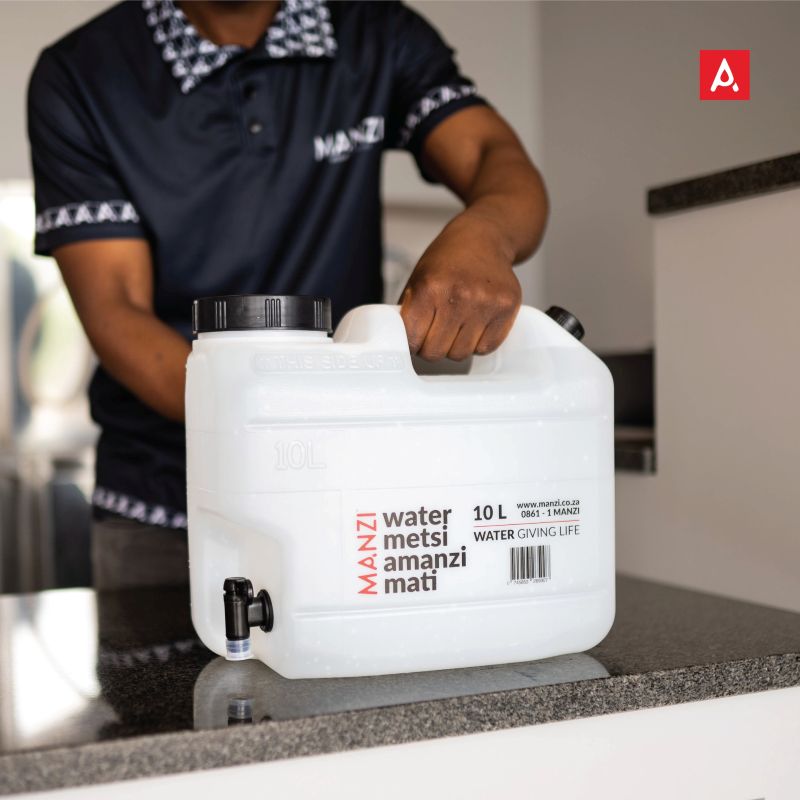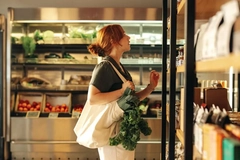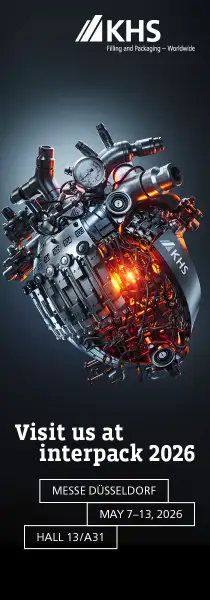Refill systems gain traction as cultural shift reshapes packaging consumption

Refillables play a central role in reducing reliance on single-use packaging solutions. Industry representatives highlight that refillable alternatives offer economic benefits, encouraging emerging markets to push for innovation and adoption.
Packaging Insights speaks to Unilever, refillable service providers Smartfill and Manzi Water (based in South Africa), and Reposit (based in the UK) about the shift from refill as an option to an expectation. We discuss why refilling has become a socially responsible choice and how small, informal market access can facilitate growth.
“Refillable packaging is more than an environmental solution, it represents a cultural shift in how people consume. To succeed, it must be trusted, convenient, and normalized as the default way of accessing safe, clean drinking water,” Alfred Challis, CEO at Manzi Water, tells us.
“Collaboration across municipalities, regulators, retailers, and consumers is essential. Only by working together can we ensure that water refills become not the alternative, but the expectation.”
Meanwhile, Nevo Hadas, CEO at Smartfill, says refillable packaging presents an economic necessity across markets.
“What we’re witnessing is a convergence of environmental goals with consumer demand for affordability and utility. If designed and implemented correctly, refillable systems have the potential to transform how products are sold, and how brands build trust and loyalty with consumers.”
A Unilever spokesperson notes: “Following the outcome of the latest UN Global Plastic Treaty talks last week, the Business Coalition for a Global Plastic Treaty, co-chaired by Unilever, found that harmonized regulations remain key for tackling plastic pollution and for business.”
Refill innovations
Unilever, Smartfill, Manzi Water, and Reposit offer diverse refillable packaging solutions, with emerging markets paving the way.
 Smartfill’s station works like an ATM for food and essential FMCG products.“Unilever is running refill pilot projects globally, seeking ways to reduce virgin plastic use and tackle plastic sachet waste. We share insights from three emerging markets that are helping us understand the barriers to scaling reusable packaging models,” says the company spokesperson.
Smartfill’s station works like an ATM for food and essential FMCG products.“Unilever is running refill pilot projects globally, seeking ways to reduce virgin plastic use and tackle plastic sachet waste. We share insights from three emerging markets that are helping us understand the barriers to scaling reusable packaging models,” says the company spokesperson.
“We’ve been trialing a variety of reuse-refill models across our broad portfolio — building expertise, testing, and learning from different approaches.”
Hadas explains that Smartfill’s station works like an ATM for food and essential FMCG products.
“Consumers can choose the exact quantity they want, and the dispenser provides it without the need for single-use packaging. The system uses reusable plastic hoppers that meet strict food safety standards, ensuring both hygiene and regulatory compliance.”
For Manzi, Challis notes that with over 100 outlets across South Africa, the company has prioritized the adoption of refillable packaging solutions “to ensure safe, clean drinking water remains accessible, affordable, and environmentally conscious.”
Meanwhile, Stuart Chidley, co-founder at Reposit, shares that the returnable packaging platform includes all stakeholders and rewards shoppers. “We work with stakeholders to design, build, and operate reuse systems that work. Projects included M&S homecare products reuse system in 25 stores, Borrow Cup in Glasgow with Costa Coffee, Caffe Nero, and Burger King.”
Supporting drinking water access
Challis says that Manzi Water’s refill model promotes accessibility, affordability, and sustainability. “Across our national network, customers can refill their own containers or purchase a durable one on-site.”
The company’s range of refillable packaging is designed for different needs. The 20 L polycarbonate (PC) bottles are made to be highly durable, BPA-free, and resistant to heat and UV exposure. Meanwhile, the 10, 20, 25 L HDPE containers are also said to be highly durable and BPA-free, as well as fitted with easy-to-use taps.
“The 20 L PC bottles are complemented by home- and office-friendly water dispensers, with rental options available at selected outlets. For added convenience, Manzi Water also offers a refill delivery service, ensuring households and workplaces can stay hydrated without relying on single-use packaging.”
 Manzi Water's refillable packaging is shifting from a niche to a mainstream solution in South Africa.Challis observes water refills are shifting from a niche choice to a mainstream solution. Three forces are driving this shift:
Manzi Water's refillable packaging is shifting from a niche to a mainstream solution in South Africa.Challis observes water refills are shifting from a niche choice to a mainstream solution. Three forces are driving this shift:
• Affordability — Consumers are under pressure, and water refills priced from R1.00 (US$0.06) per liter present significant savings.
• Sustainability — Growing awareness of plastic waste is motivating customers to adopt water refill habits.
• Technology — Advanced water purification, monitoring, and system design are strengthening public confidence.
“Where once only early adopters embraced refills, today we see uptake across diverse demographics, particularly in communities facing unreliable municipal water supply. Refilling has become a practical and socially responsible choice.”
Economic viability
Smarfill’s Hadas argues the commercial viability of refillables comes from two key factors. “First, the dispensers are designed to be low-cost and compact, making them easy to deploy at scale.”
“By targeting informal retailers in low-income markets — where space is limited and turnover is high — we make it possible for store owners to recover the dispenser investment quickly from the gross margin they generate.”
Second, Smartfill focuses on high-volume necessities such as staple foods and daily-use items. “These categories typically have a large price gap between bulk purchase costs and the price consumers pay when buying small portions, which creates healthy margins. That margin spread ensures that both the retailer and the supply chain remain profitable.”
“Our primary focus is not on large, formal retailers but rather on manufacturers who want to access informal markets. These markets are often underserved but represent massive growth potential. The dispensers themselves can be branded, which transforms them into a powerful tool for retail presence and brand reinforcement.”
Hadas says that the dispenser acts like “a permanent in-store advertisement.” This approach can create a distribution and branding opportunity that is attractive to manufacturers.
“In low-income markets, the dominant trend is that consumers bring their own containers from home. Rather than looking for branded packaging, they prioritize affordability and functionality.”
UK trends and drivers
 Reposit's has homecare reuse systems in 25 M&S stores across the UK.Reposit’s Chidley says in the UK, there is a common understanding that the standardization of packaging formats and packaging-as-a-service are key enablers for a reuse transition.
Reposit's has homecare reuse systems in 25 M&S stores across the UK.Reposit’s Chidley says in the UK, there is a common understanding that the standardization of packaging formats and packaging-as-a-service are key enablers for a reuse transition.
“Cradle-to-cradle design principles are now common language and design principles. Single-use packaging ‘improvements,’ like making it more recyclable and lighter-weight, have almost been exhausted, and organizations are realizing they will not hit their plastic reduction and emissions targets, so collaborating on a reuse project is now the only option.”
“Asset tracking is an opportunity but there are numerous other ways in which technology can drive efficiency in the reuse scale up process. From automated AI quality and sorting of washed packaging to innovation in reverse vending machines and consumer experience.”
Chidley indicates that in the next 12 months, “a lot of major collaborative projects” will become public, “all with a focus on standardization to prove a scalable model.” Reposit is working on three such products, which the company co-founder describes as “the world’s first.”
“If we want to solve the systemic take-make-waste issue, we need collective action to create systemic change.”











